The Famous Expats Who Shaped 20th-Century Culture
Writers, artists and thinkers who established new creative lives in Paris, New York and California.
I'm Monica, and I navigate life as a multi-country expat, surrounded by books and writing. My mind is modeled by the 5 languages I speak (almost) daily.
Millennial Monica is my newsletter about what it’s like to live a multicultural life and not lose your true self along the way. Interested in reading more of my work?
Ernest Hemingway, from Oak Park, Illinois to Paris.
Albert Einstein, from Ulm, Germany to Princeton, New Jersey.
Gertrude Stein, from Pennsylvania to the Left Bank in Paris.
Thomas Mann, from Lübeck, Germany to California.
Vincent Van Gogh, from Zundert, Netherlands to Arles, in the south of France.
Pablo Picasso from Málaga, Spain to… yet again, Paris.
These are some of the most famous expats of the 20th century. They polarized between Paris and New York, with a few exceptions.
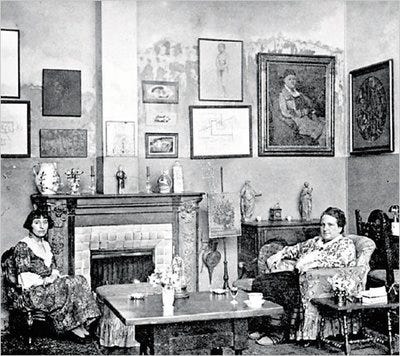
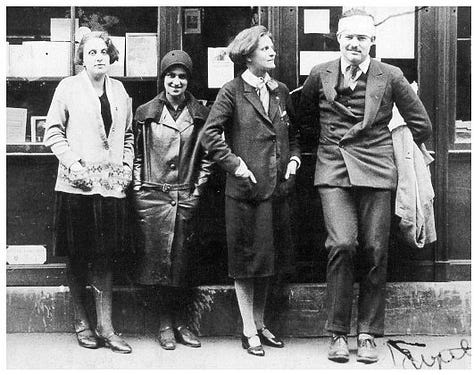
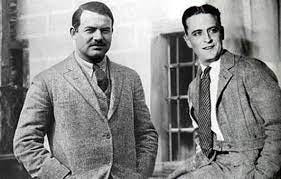
First, there were the Americans who flocked to Paris.
They looked for the bohemian lifestyle escaping the materialistic American society that was too focused on consumerism. Gertrude Stein gave them the name ‘The Lost Generation’. After World War I the American artists were adrift, looking for meaning in the City of Lights. Artistic meaning but also lots and lots of alcohol, while the US was going through its Prohibition era.
Ernest Hemingway, F. Scott Fitzgerald, Gertrude Stein, and Ezra Pound were among the many artists drawn to the postwar vibrance of Paris, intellectual salons, and affordable living. They were joined by other European expats. Think Picasso and Modigliani.
There was also Sylvia Beach, who moved from Maryland to Paris and opened the bookshop Shakespeare & Co., giving a meeting hub to the American crowd.
Paris wasn’t just a picturesque backdrop for writing and painting though. Many artists were disillusioned by the aftermath of World War I and sought an escape from what they saw as the conservatism of American life. France offered something radically different: a slower pace, a more liberal attitude toward art and lifestyle, and a community of kindred spirits.
Hemingway, for instance, often wrote about his sense of alienation and the constant search for belonging, even as he praised the simplicity and elegance of French life. Does this sound familiar to you, my expat readers?
Paula McLain paints such vivid pictures of the expat life in Paris at the time, in her novel, ‘The Paris Wife’ — narrated by Hemingway’s first wife, the Paris wife, Hadley.
“We’d go to Shakespeare and Company, talk about books and art and Gertrude Stein’s salon, and always there was wine and smoke and that heady feeling that something important was happening.”
“We were American, and there was no disguising it, no matter how well we spoke French or how often we drank Pernod in Montparnasse cafés. But Paris didn’t mind. It let us in, as long as we loved it fiercely enough.”
Then there were the Europeans who fled fascism for the free world across the Atlantic.
In the 1930s, about a decade after the Americans migrated toward Paris, Europe was engulfed by fascism. Artists, scientists and writers from various countries were no longer safe in Europe.
Vladimir Nabokov was your true multi-country expat and migrant. Born in St. Petersburg, Russia, he lived in England and studied at Cambridge University, and later moved to Berlin. After 15 years in Germany where “he never became fond of Berlin, and at the end intensely disliked it”, he moved to France, first to the south and finally residing in Paris. From Paris he fled to the US in 1940, settling in Massachusetts and becoming a literature professor at Cornell University. After about 20 years on the American East Coast, after becoming famous for writing Lolita, he moved to Switzerland for the last part of his life.
Albert Einstein fled the Nazis in 1933, and once settled in Princeton, New Jersey, became a symbol of refugee intellect and played a role in advocating for displaced scholars. He was a symbol of ‘brain drain’ due to political repression. His presence at the Institute for Advanced Study in Princeton made it easier for other European intellectuals escaping the Nazi persecution to settle there.


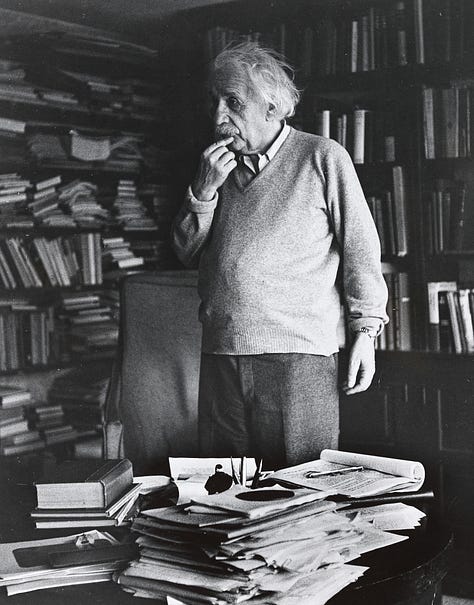
The ‘Weimar Republic’ was exiled to California.
The ‘Weimar Republic’ was how Germany was called after World War I, until Hitler rose to power. Economic troubles abounded, but cultural achievements, especially in art, literature and cinema defined this era.
Once the Nazi repression started, Los Angeles and the Pacific Palisades area became a kind of “Weimar-in-exile”, with enclaves of European artists and thinkers recreating salons, cafés, and cultural life far from home.
“We do not merely read books, we discuss ideas, world events, literature, music. Here, we are trying to keep alive a spirit that once animated European culture”, the expat artists would say.
Thomas Mann fled Germany in the 1930s and settled in the Pacific Palisades, west of LA, in a modernist villa that became a meeting place for fellow artist expats. Mann, though grateful for safety, often described his life in California as a kind of elegant exile — physically comfortable but emotionally distant from the world he had left behind:
“In this beautiful land, which offers peace and security, a life of dignity and freedom, one cannot forget for a moment that one is a guest, a stranger.”
“Where I am, there is Germany.”
This striking statement is from a speech Thomas Mann gave during World War II. He referred to the true spirit of Germany’s culture and humanism, which lived on through exiled intellectuals, like himself, not in the regime that had taken over the country.
Actors such as Marlene Dietrich and various philosophers, all flocked to the Pacific shores in California, in exile from Germany. Their general sentiment was that the American culture industry was both fascinating and troubling — a mix of liberation and commodification that inspired lots of criticism. Many of these intellectuals felt disconnected from the materialism of American life or frustrated by Hollywood’s commercial nature.
Still, this tight-knit community left an important legacy. They helped shape postwar American thought, influencing music, literature, film, and philosophy.
(Cultural) House Swap
These two exoduses from the early part of the 20th century are like an exchange program of cultural salons.
The Pennsylvania-born Gertrude Stein settled in Paris and started the salon in her home at 27 rue de Fleurus.
A decade later, German-born Thomas Mann, exiled in California, started a salon in his home at 1550 San Remo Drive in the Pacific Palisades, for fellow Europeans.
Some of these artists moved looking for a more bohemian lifestyle. Others fled inhuman political persecution. But they all took with them, around the world, wherever they happened to settle, their need for cultural expression, intellectual debate and preservation of their roots. We, the expats of today, moving countries and continents, we walk in the shoes of these famous predecessors. We come from a line of brave people who left the well-known and sometimes suffocating homelands to find meaning in foreign lands and alien languages.
Moving abroad can be both liberating and disorienting — a reshaping of self through cultural displacement. And all of the famous expats of the early 20th century are a testament to it.
If you enjoyed this piece, the best way to support me is to share it ❤️, either on social media or restack it 🔄 here on Substack. It's an easy click for you, and it helps me reach more readers. Thank you!


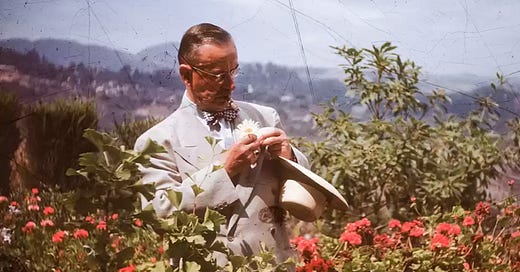



This piece has ticked so many boxes for me as someone with a soft spot for Paris in the interwar period and the many writers and artists that flocked there. Beyond the romanticisation, it's always interesting to see the contributions that these people made in their adopted cities/countries and how had they not been there, maybe events would have taken a different turn. It comes to mind how Sylvia Beach from Shakespeare & Co, was the original publisher of Ulysses by James Joyce (she also pushed him to complete it) and how she managed to smuggle it to the US. If Joyce hadn't lived in Paris, he wouldn't had met Beach and maybe Ulysses wouldn't have been written at all!
Fascinating info. The cross-Atlantic expat-ting is something. I never put together how many ships ‘passed in the night.’ Loved this.